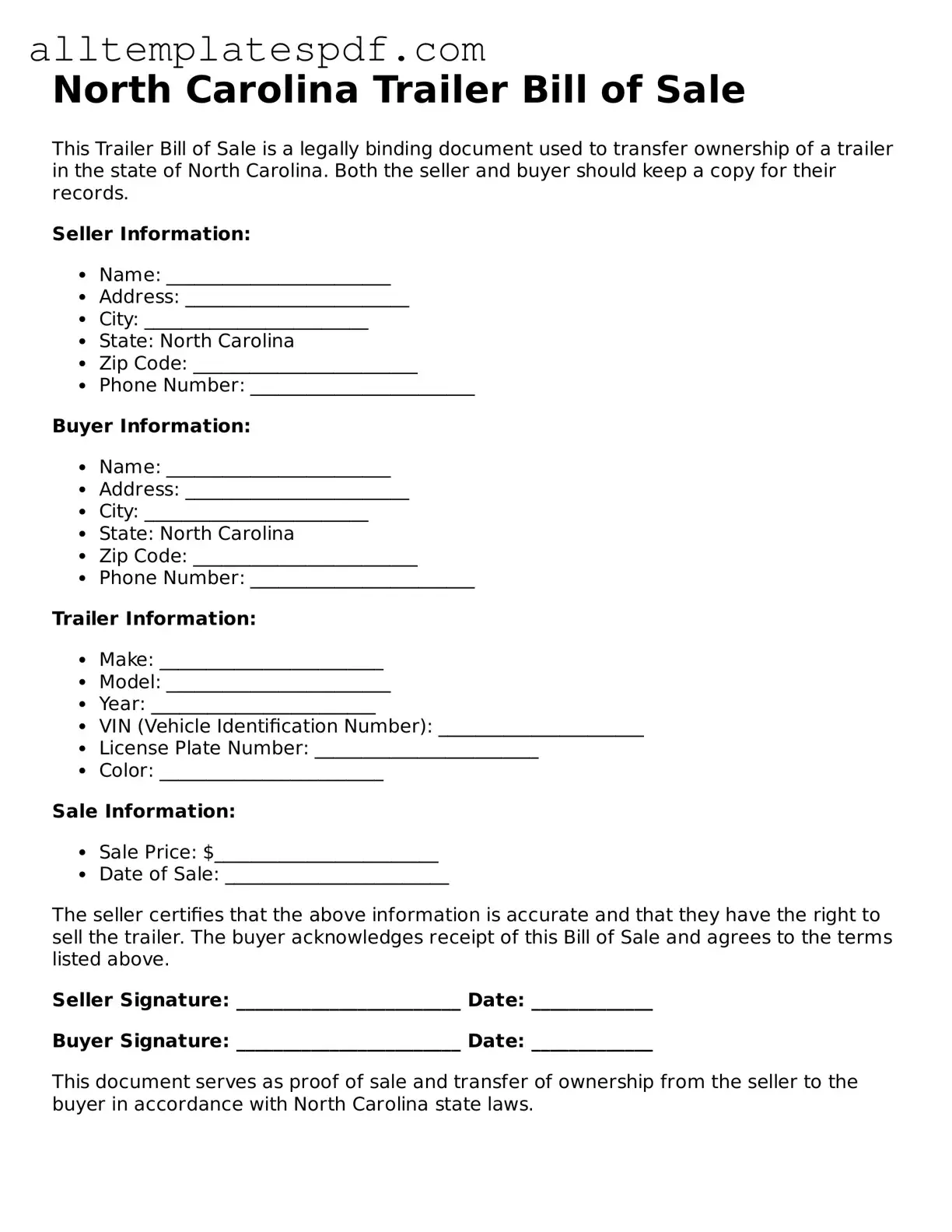Blank Trailer Bill of Sale Template for the State of North Carolina
The North Carolina Trailer Bill of Sale form is a legal document used to record the sale and transfer of ownership of a trailer in North Carolina. This form serves as proof of the transaction and includes essential details such as the buyer's and seller's information, trailer specifications, and the sale price. Completing this form is crucial for ensuring a smooth transfer of ownership; fill out the form by clicking the button below.
Open Editor

Blank Trailer Bill of Sale Template for the State of North Carolina
Open Editor
Fast and easy form completion
Complete Trailer Bill of Sale digitally — fast and easy.
Open Editor
or
↓ Trailer Bill of Sale PDF Form
